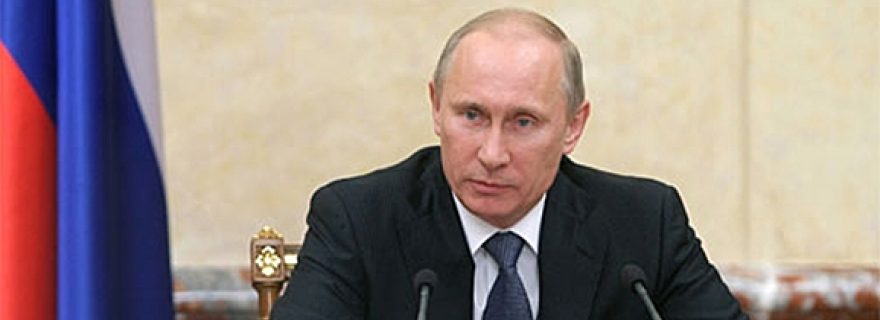The Psychology of Putin
Whether in politics or in daily life, we all encounter conflicts: between colleagues, relations, or neighbours. Often these seems to stem from conflicting interests or the allocation of scarce resources.
Matters such as access to a strategically positioned port or inexpensive natural gas are put forward as the explanation for the continued existence of conflict hotspots all over the world. When it comes to conflicts on a smaller scale, we tend to talk about reasonable costs, or acceptable timeframes. Implicitly, we assume that everyone applies roughly the same logic in resolving conflicts. After all, surely any reasonable human being would want to limit the costs, and would realize that you have to pay for your fair share of damages? But is this actually the case?
Honour, control, or loss of face
What about those divorced parents who wrangle with one another in court case after court case about fixing alimentation, choosing a school, or how to plan the holidays? Why is it that several countries in central Europe are concerned about their autonomy, even if they don’t have a strategic port or problems with gas provision? It’s not just the allocation of resources that plays a role, but all sorts of other, less concrete factors, such as honour, control, or loss of face. Experts on East-European affairs have also drawn attention to such elements, pointing out that Putin feels ‘humiliated’ by the West. In his eyes, Russia has a superior civilization. The West is decadent and weak; Russia is bold and resolute. So his logic, his ‘reasonable outcome’, is fundamentally different from ours. Perhaps this is what Angela Merkel referred to when commenting that ‘Putin is living in another world’.
Difficult to resolve the conflict
This makes it virtually impossible for us to see things from his point of view, or to anticipate his next move. Therefore it is difficult for us to predict which measures will or will not have an effect; and the reverse must surely be equally true.
Quite apart from all the conflicting interests at stake, this fundamental difference in what we find important, in how we view the world, can make it very difficult to resolve the conflict, or even to imagine ways to find a solution.
Own point of view is the only reasonable one
And yet we still tend to assume that the other will find the same arguments or outcomes ‘reasonable’ as we do. In fact, we are shocked when this is not the case. This is one of the findings of our research Social Conflict within and between Groups. When allocating outcomes, people anticipate conflicts of interest and can envision possible solutions. But if they differ in opinion about important values, something very different happens. Both sides consider their own point of view the only reasonable one and work from the assumption that the other will also see it this way. If this is not the case, they are quite literally ‘shocked’: our experiments reveal physiological stress responses, an inability to see things from the other person’s perspective, and little faith in the possibility of finding a satisfactory resolution. Both parties are firmly convinced that theirs is the only true logic and cannot accept that the other does not acknowledge this.
Value systems are fundamentally different
In a globalized society, we increasingly frequently encounter people whose value systems are fundamentally different from our own. If you are trying to work out what the other party will do, there is little point in reasoning in terms of your own logic. You have a better chance of resolving the conflict if you try to imagine how the other person views the situation, even if you find that perspective totally unreasonable.





